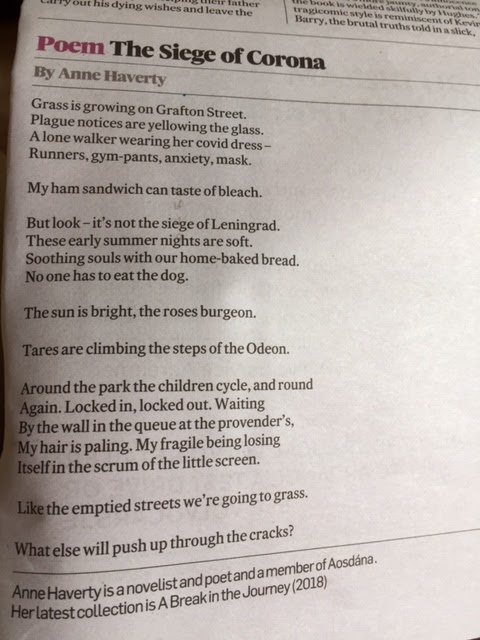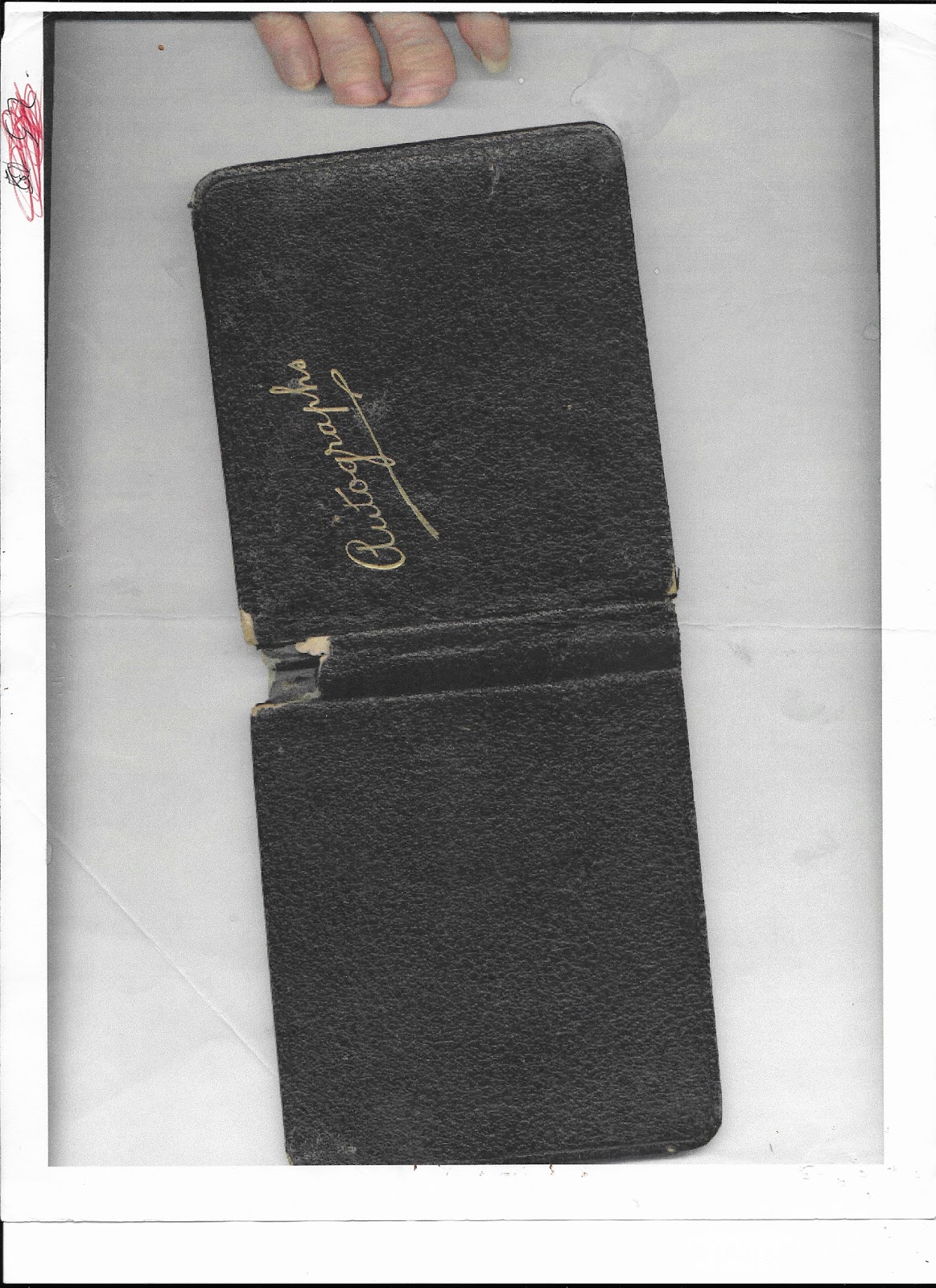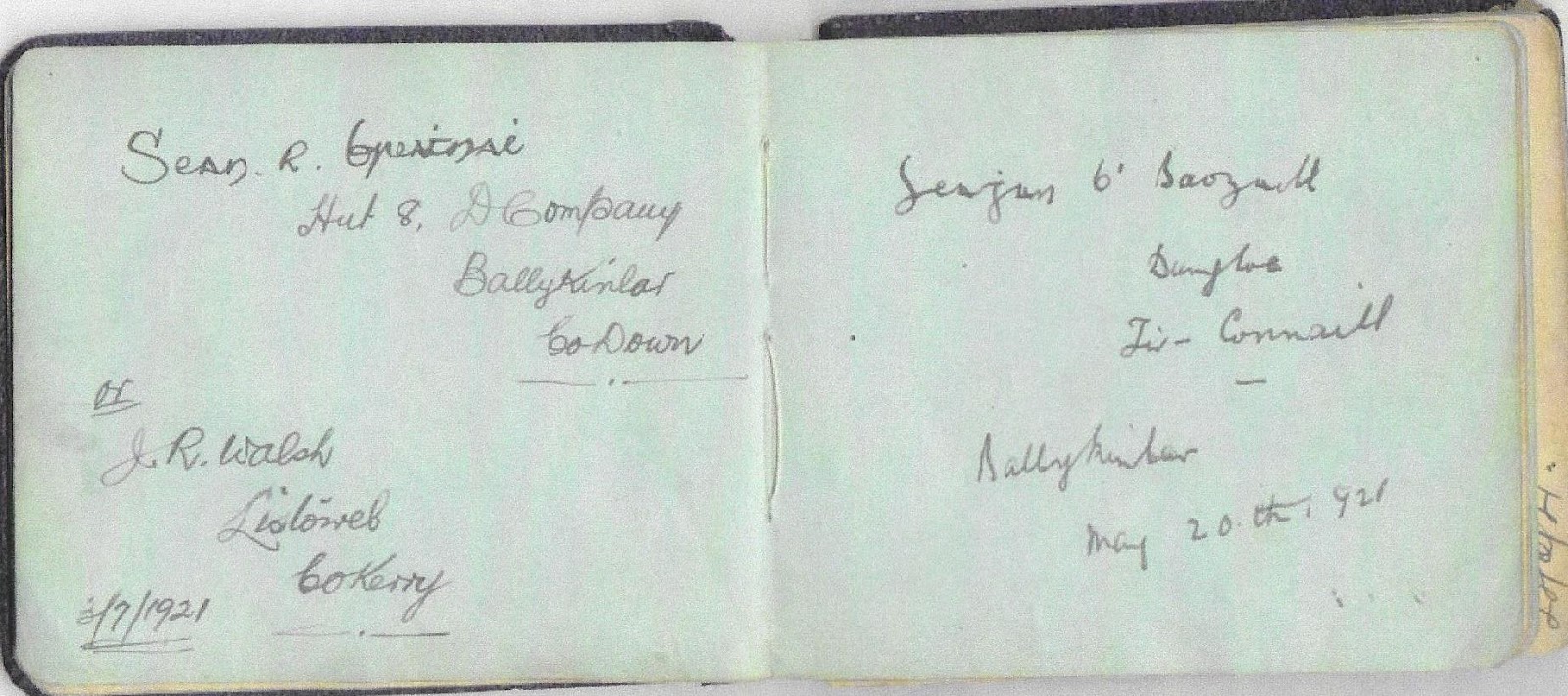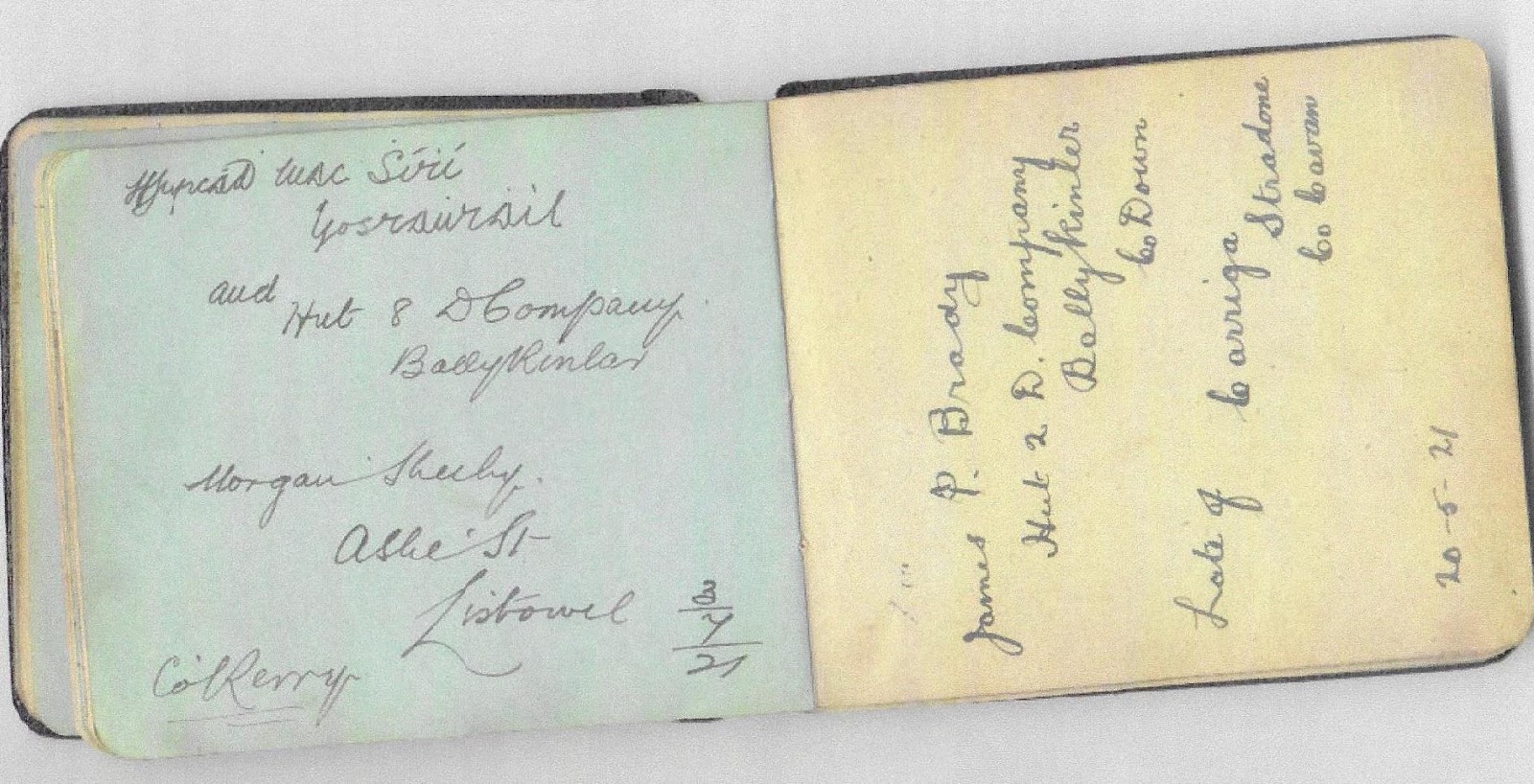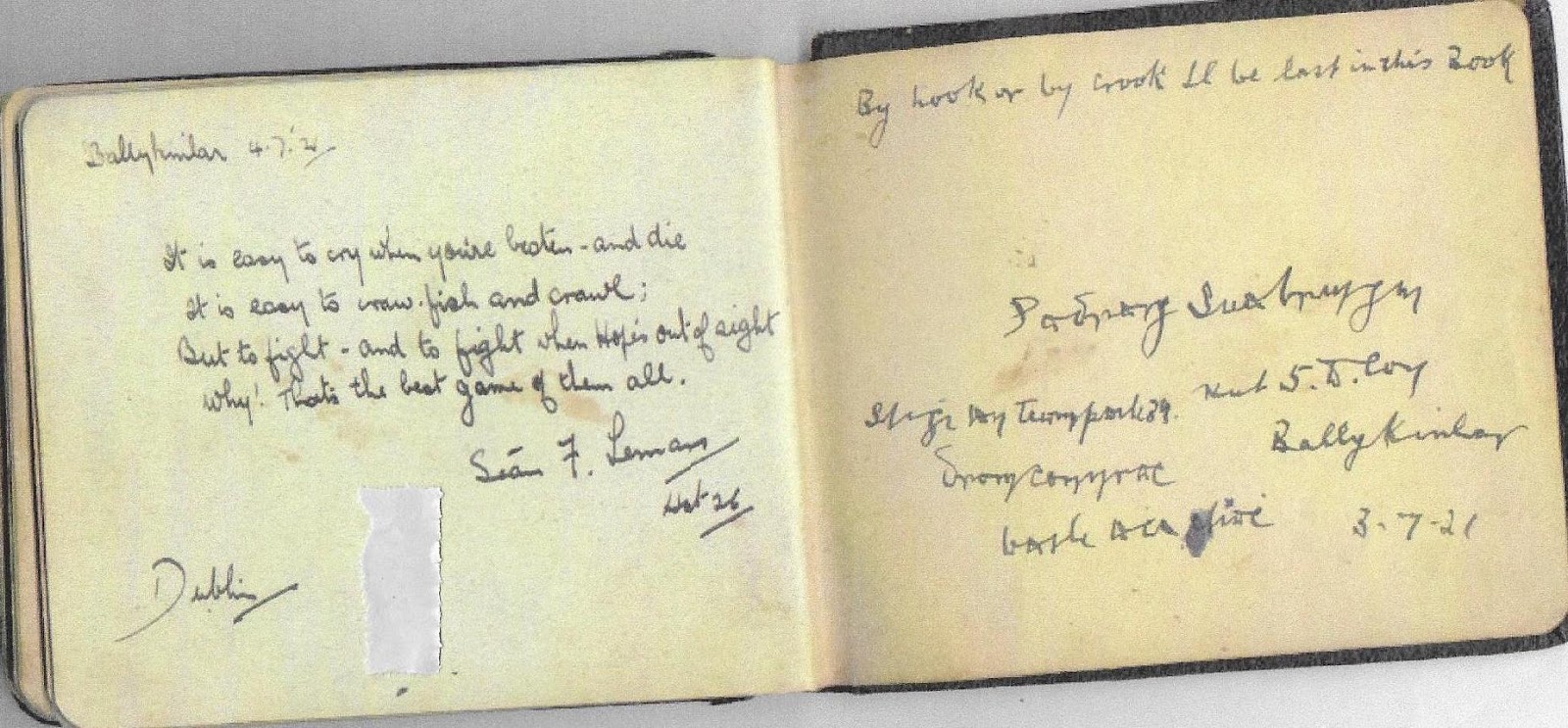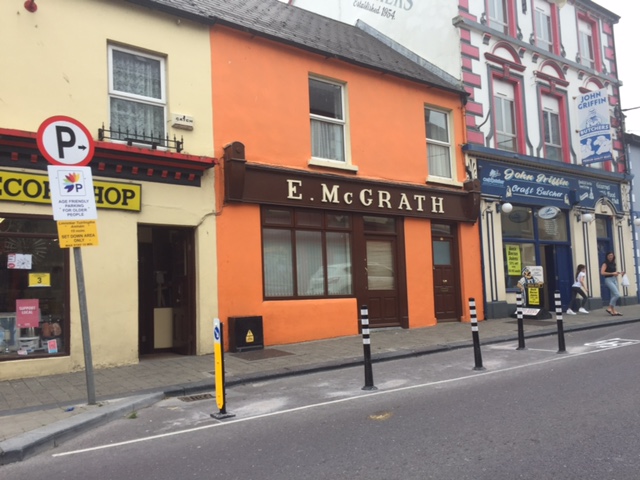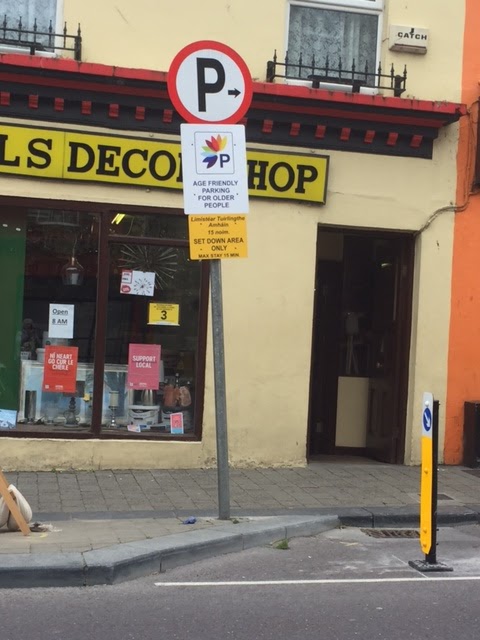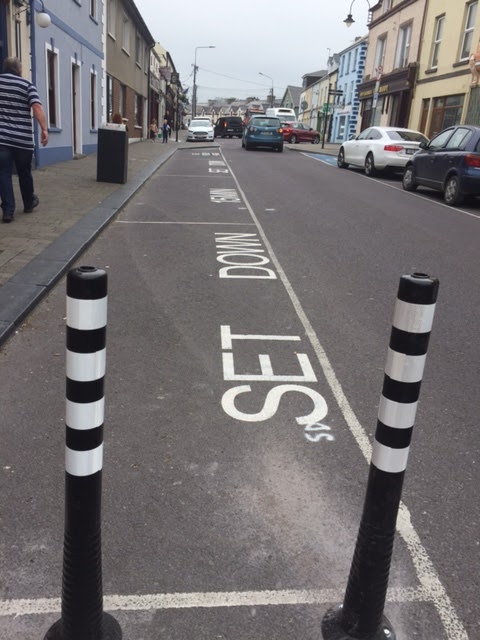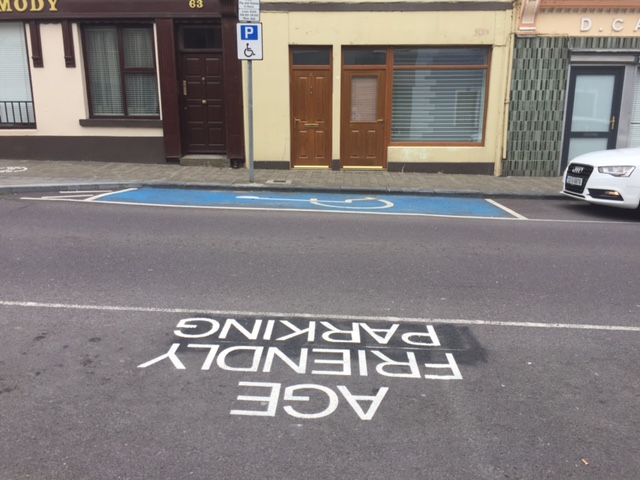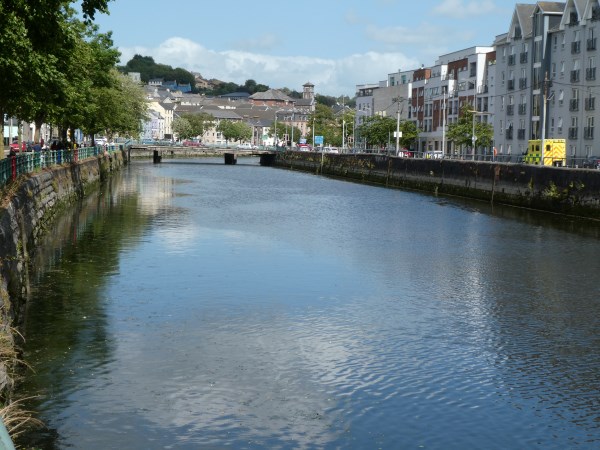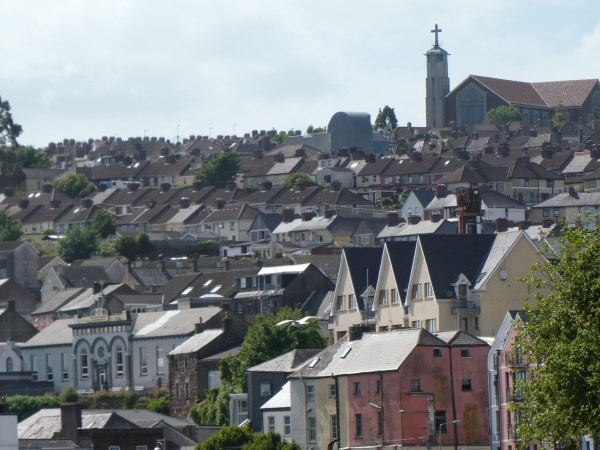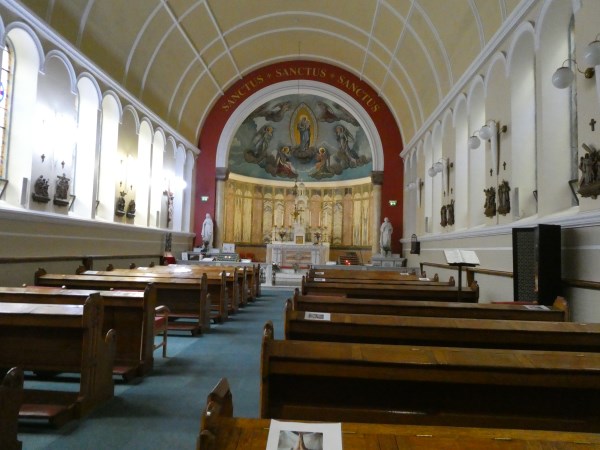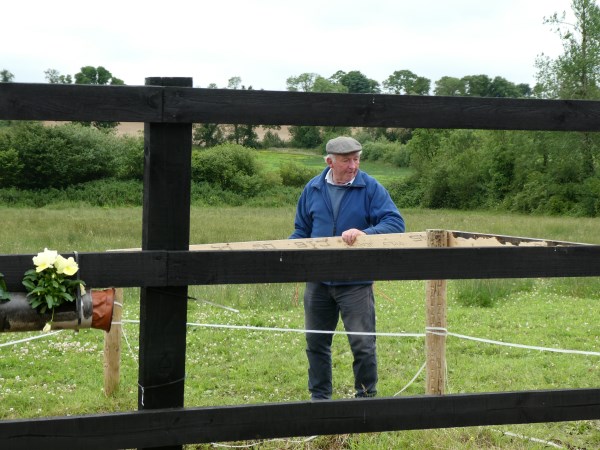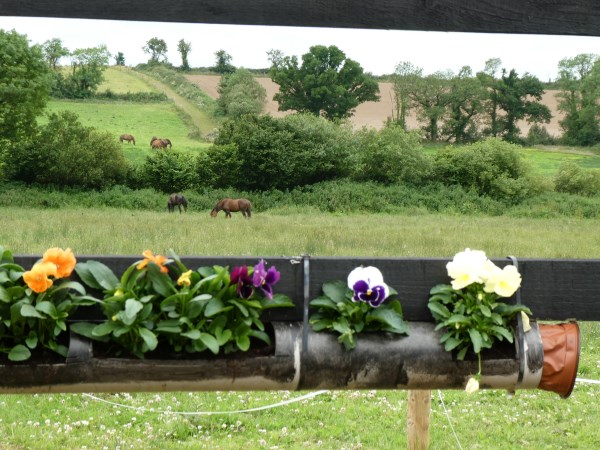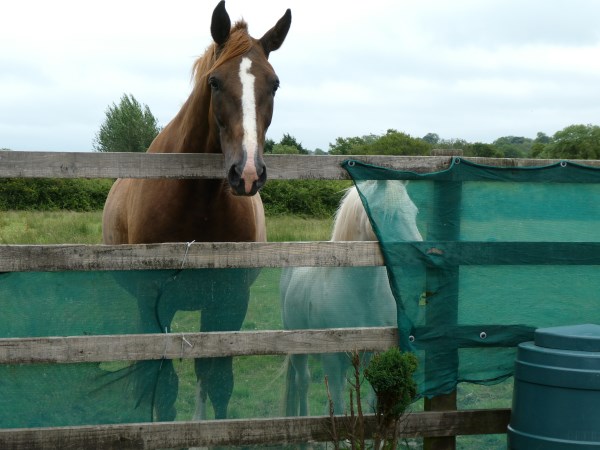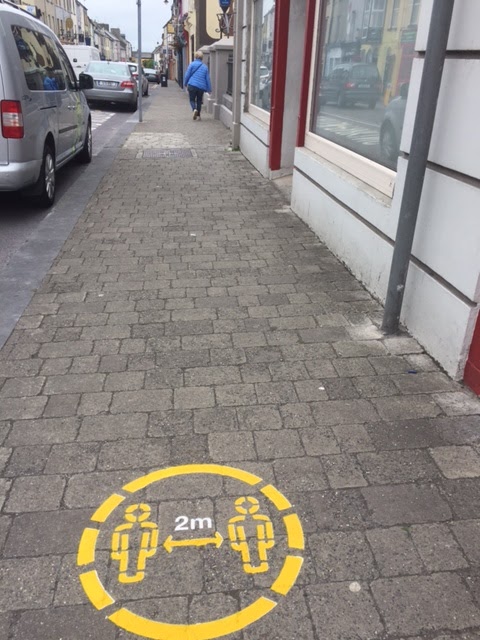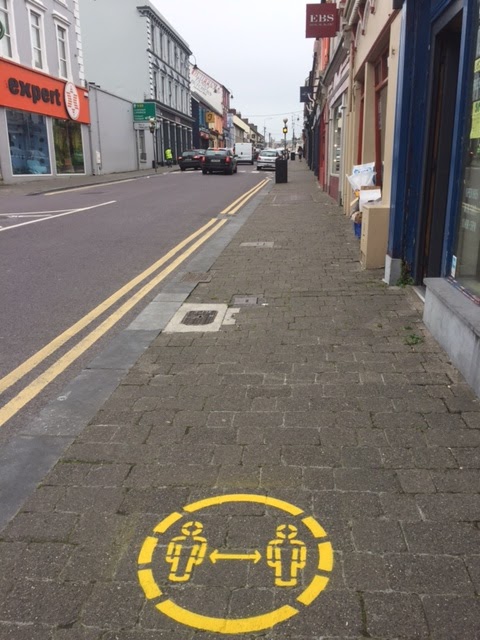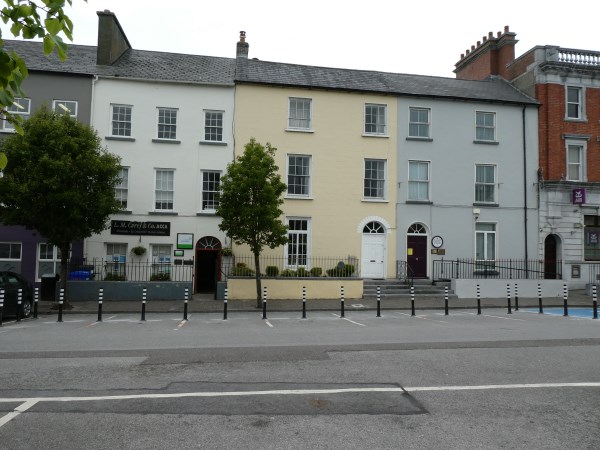
Photo: Róisín Darby
>>>>>>>>
Entertaining the Troops
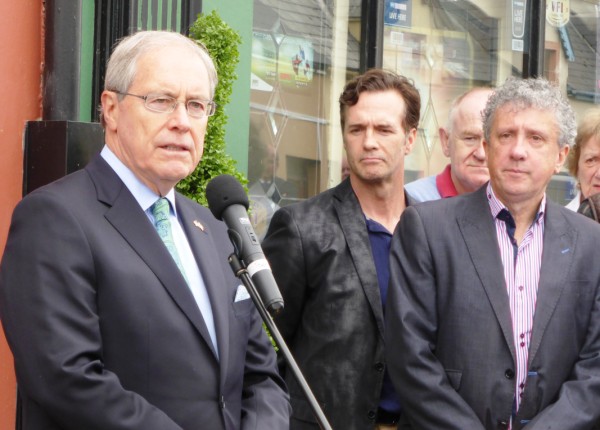
The man in the middle between the then U.S. ambassador and Billy Keane is Ciarán Sheehan. Ciarán is an accomplished Broadway singer with Listowel roots. On the day I took the picture he sang the U.S. national anthem at the unveiling of a plaque to Kathy Buckley who had been a cook in the White House. The occasion was part of Listowel Food Fair 2015.
What is Ciarán up to now? Apart from acting and singing on Broadway, he is singing for front line workers at Yale New Haven Hospital. Here is what the hospital website says. The photos came from there too.
Actor, singer, and Broadway star Ciarán Sheehan thanked healthcare workers at Yale New Haven Hospital for their efforts during the COVID-19 pandemic with a repertoire of emotional, uplifting Broadway tunes on Tuesday, June 23. Mr. Sheehan completed the stirring musical performance before dozens of socially distanced patients, staff, and onlookers outside the main entrance of 20 York Street on the York Street Campus.
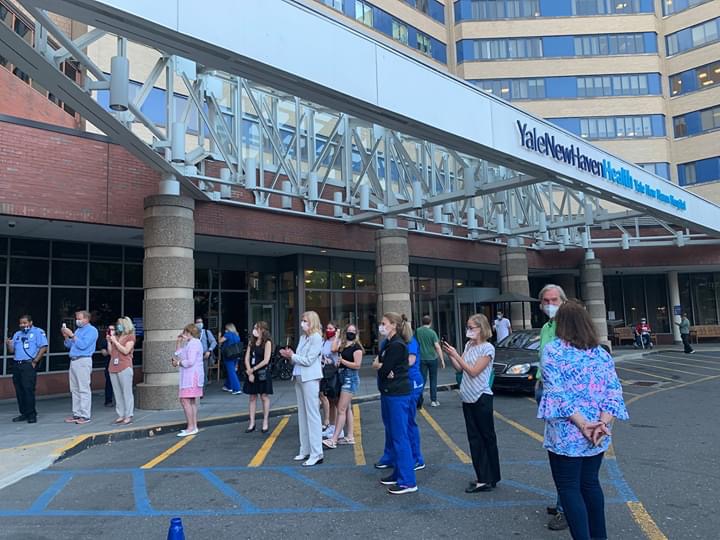
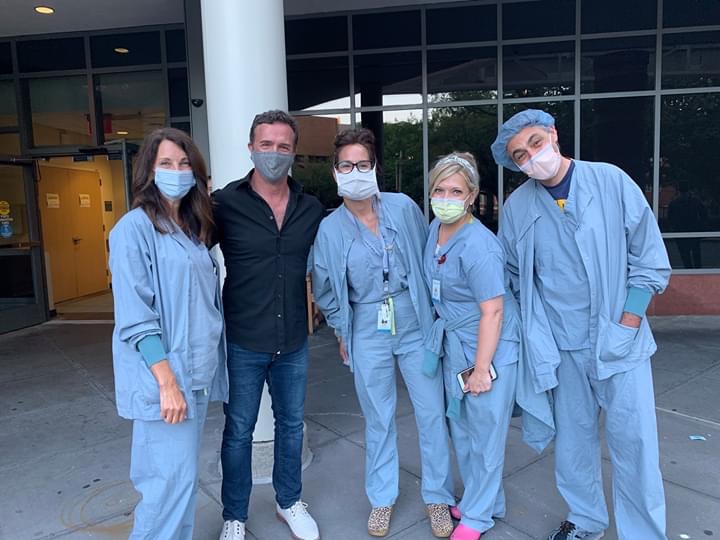

<<<<<<<
Irish Language Revival in 1900
Kerry Sentinel Wednesday, 21 November, 1900; Page: 4
IRISH LANGUAGE REVIVAL. ENTHUSIASTIC. PUBLIC MEETING IN L1STOWEL.SPEECHES BY MESSRS FLAVIN AND O’DONNELL, M.P’S.
On Friday night a large and thoroughly representative public meeting was held in the Hall of the St Patrick’s Total Abstinence Society, Listowel, in support of the Irish Language Revival Movement, Addresses were delivered by Messrs; M J Flavin, T O’Donnell, M.P’s; J Gallagher, Tralee, and others. The proceedings throughout were of the most enthusiastic character.
Amongst the others present were—Messrs T Gibson, M Enright, B.A, Professor St Michael’s College; P Breen, do; M; O’Connor, J.P; J T Pierce, V.S; J J. Galvin, R.D.C; Dr Crowley, R J Marshall, Solr; D Browne, R Browne, J B Tackaberry, UDC; W L Fitzgerald, do; P Hayes, do; M Kerin, do; R J Cuthbertson, J Collins, J M’Guire, E O’Sullivan, D J Flavin, U.D.C ; C Hanlon, J Nolan, J Browne, L Buckley, U.D.C ; W Keane, etc, etc.
The Chairman, who on rising was received with loud applause, said that he sincerely thanked them for conferring on an humble townsman of their own the very high and distinguished honour of being asked to preside at that meeting, and he thought there were very few occasions greater pride than on an occasion like the present, when old men and the young blood were hand in hand in support of their good old language, which was prized by their ancestors, and which unfortunately and unfriendly Government had done all that in them lay to bury beyond hope of resurrection (applause). He thanked God the spirit of the Irish people, as well as the spirit of the Irish language, had not been killed. They were assembled to give their little assistance to push forward the Gaelic language by every means in their power;
and he said that the language, being the language of Ireland, was a language well worthy of support; and they could not expect that the Irish people would be worthy of their ancestors unless the language that had been handed down had been preserved by them (applause). His duty there that night would be a very light one—merely to introduce to them the several speakers , some of whom were young men who had made a very close study of the Irish language, and whom, he was sure, they would be delighted to see coming ward speaking in support of their native tongue. On the proposition of Mr M Kerin, U.D.C, seconded by Mr J J Galvin, R.D.C, Mr T O’Sullivan was appointed secretary to the meeting. The following letters of apology were read:— Listowel, November 16.1900. Dear Mr O Sullivan —Lest I may not be able to attend your meeting to-night, I write to let you know that the movement which is being got up here for the revival of the Irish language has my fullest sympathy and shall freely get any help I can give it. (Applause). Yours faithfully, John Pattison. Finuge, 16,11, 1900.
T F O’Sullivan, Esq, Sec Gaelic League, Listowel Branch).
Dear Mr. O Sullivan —I am duly in receipt of your circular, and in reply beg to say that the movement to revive the Irish Language has my fullest sympathy and support. I am sorry I cannot be at your meeting tonight, but shall gladly become a member and do what I can to forward the movement (applause). Yours Sincerely Edward J Cussan
Mr T Gibson proposed and Dr Crowley, seconded the adoption of the following resolutions.
1—That we pledge ourselves to promote by every means in our power the revival of our mother tongue (applause).
Several other promotional points were also approved.
<<<<<<
Hairdressers are back
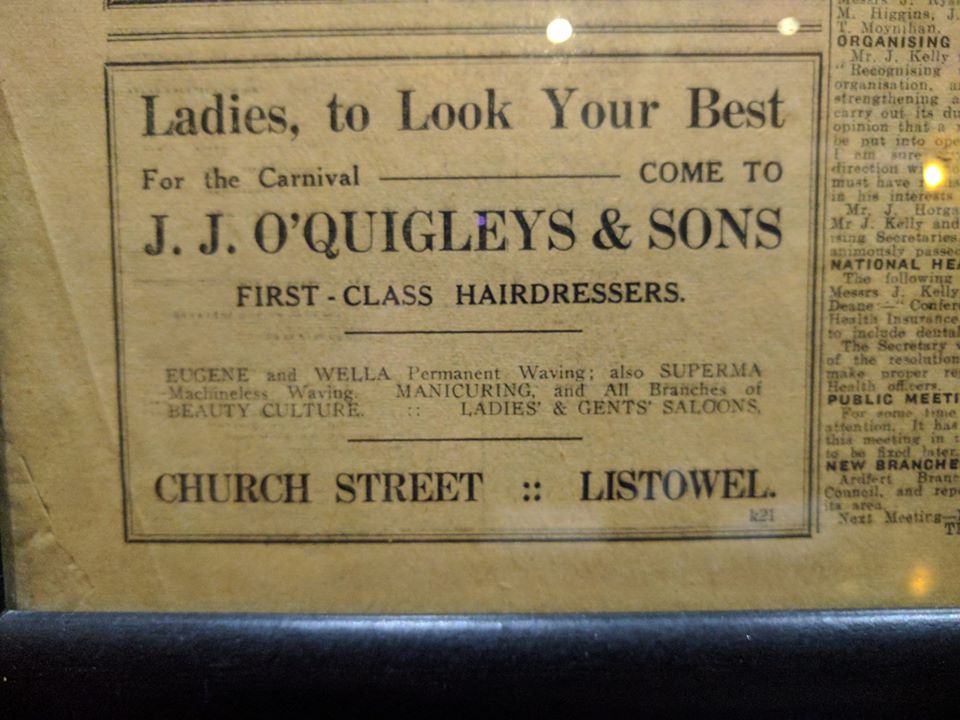
Damien Stack found this old ad for a Listowel hairdressing family.
<<<<<<<<<
Picnic in the Park
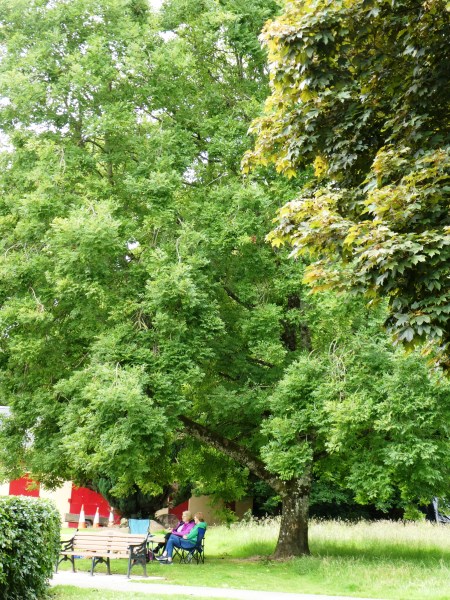
Yesterday, July 2 2020 was a lovely summers day. I had a picnic in the park with my friends. We had a delicious afternoon tea box from John R.’s and we enjoyed it in the shade of this beautiful ash tree. David Twomey, Listowel’s very knowledgeable town gardener told us that this ash tree was planted by the Chinese ambassador on a visit to Listowel.
The sapling he planted was brought from nearby Gurtenard Wood. It is thriving in its location in front of the Pitch and Putt clubhouse. Is is showing no sign of the dreaded ash dieback disease that has affected some of the other trees in the park.


